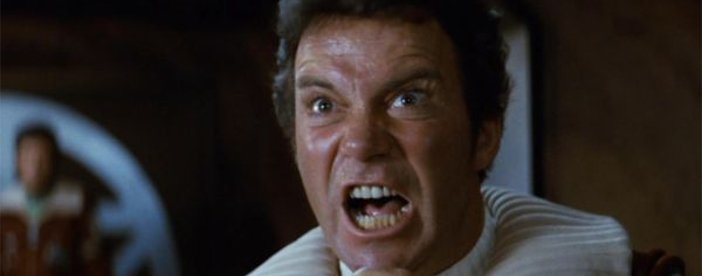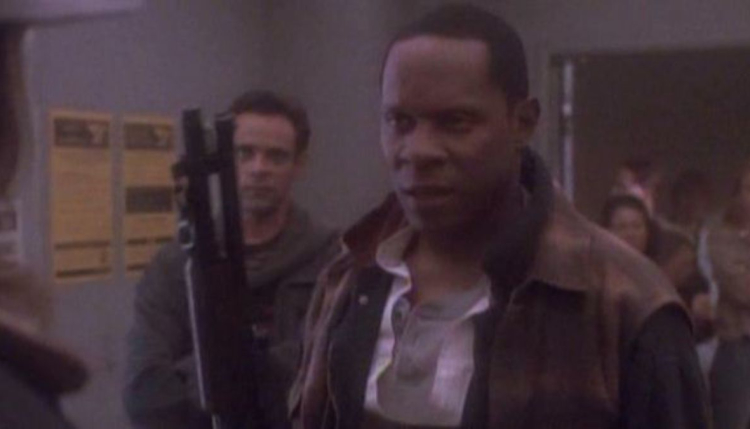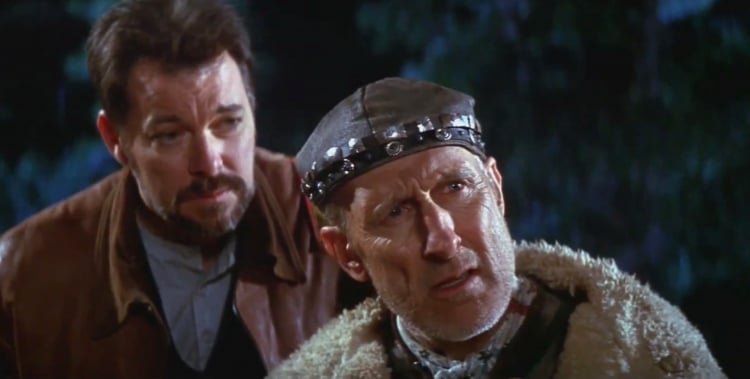The Star Trek Predictions of the 21st Century | Are We on Course for World War 3?
I find myself talking about two Star Trek moments a lot these days (sometimes in pubs, declaiming to friends’ boyfriends I’ve only just met, because social cues are clearly my forte). ‘Past Tense!’ I declare. They wait, patiently, politely, for more detail (partly because they sense I have Trek-knowledge, but largely because their girlfriends are watching and urging them to indulge the madwoman).
I’ve written about my great love for DS9 here previously, but as the years tick by, more and more I am impressed in particular with a two-part time-travel episode aired in 1995, set mostly in 2024, that feels entirely plausible in 2017.
[pullquote]A subsequent movie predicted the extinction of humpback whales[/pullquote]
Let’s take a moment here. The original Trek (aired in the late 1960s) had a vision of the ‘90s that didn’t quite work out, though its status as ‘original’ must be taken into account (how do you snark about late-20th-century mobile phones looking like Starfleet communicators when they were partly the inspiration for the real-life devices?). A subsequent movie predicted the extinction of humpback whales and possibly (usually read as a joke, but who knows?) the inclusion of Jacqueline Susann (Valley of the Dolls) as one of the ‘giants’ of 20th-century literature.
The various TV series within the franchise fumbled at late-20th and early-21st-century predictions, usually getting it horribly wrong (most egregiously Khan and the Eugenic Wars of the 1990s, although tie-in novels do address this discrepancy) or being overly-vague. Understandable, given the long-running nature of the show, that the later series would be reluctant to put specific dates on events. When they did, it was typically for non-American countries – a 1990 The Next Generation episode referred to political violence leading to the ‘reunification of Ireland’ in 2024 (the episode was only shown on satellite TV in the British Isles until 2007, when the BBC finally aired it).

DS9’s ‘Past Tense’, however, looks at the same year, only instead of a single 2024 reference we have a two-parter episode depicting in depressing detail what the future might look like. Viewing this episode 22 years after its original airing, and 7 years before the alleged date, you might expect that it adheres to typical Trek-time-cringe – that already the world has moved on so much that the predictions for a future year already seem embarrassingly out-of-touch.
To say ‘Past Tense’ bucks the trend is an understatement. San Francisco, 2024. Three humanoids end up on the streets. The beautiful white woman is rescued by a charming man, and is trusted by the authorities despite the lack of official ID. She can enter the world of glamour and cocktails, where there are worries about the chaos in Europe. The two men she has been travelling with – one black, one Arabic – are immediately treated as suspicious.
The men are rounded up and taken to a ‘Sanctuary district’, a fenced-in enclosure of a kind that exists in most major cities in the United States at this time. This is allegedly for their own safety, but in practice it is a way of moving the unwanteds off the streets – out of sight, out of mind. Inside the walls of the district, the inhabitants range from mentally-ill individuals unable to access the help that even in this century is available to them, to decent hard-working guys whose blue-collar jobs have been lost because of ‘the economy’ and who can’t find more work. And alongside them are angry white men with guns who are prepared to blame anyone and anything for the problems they suffer.

There are seven years to go until this episode is set ‘now’ and yet it becomes more and more prescient every time I watch it. It is worth noting that the notion of something similar to the ‘sanctuary’ spaces was suggested in California even as the episode was being developed, a coincidence which spooked the writers at the time, but also that – regardless of how problematic the notion of such separate spaces are – the idea of ‘safe spaces’ for the homeless is still controversial, not because it might imprison them but because it might ‘encourage’ them.
‘Past Tense’ is deeply depressing but ultimately hopeful. ‘How could they have let things get so bad?’ earnest young doctor Julian Bashir asks at the end of the episode. His commander wishes he had an answer. But said commander has also, essentially, saved history; he ends up taking on the role of a folk hero in order to ensure the continuity of the established timeline, despite risking his own life in doing so.
I like to think Captain Picard would have done the same in the TNG First Contact movie, if Zefram Cochrane hadn’t been found. But First Contact – hitting cinemas in 1996 – is a slightly different beast, one which prioritises the inherent goodness of humanity over momentary anxiety. Cochrane, portrayed beautifully by James Cromwell, doesn’t intend to be “A Hero”. He wants to make the money. Learning of his future icon status, he freaks out. But on his first venture into space with warp drive – and seeing Earth from far away – he is awed.

Cochrane is going to be a hero. He’s a borderline-alcoholic with questionable musical taste but we are sure that he is on the right path by the end of the movie. He has made a warp-capable ship out of a nuclear missile from the third World War – a ship that will prompt First Contact with an alien species and lead to the peaceful Federation we see in the TV series. He has created peace out of war, but this is most definitely post-war – this is not saccharine but hard-earned.
It might be eye-rolling to look at how Star Trek portrayed the 20th century, but here is its take on the 21st: terrible things will happen. There will be oppression. There will be war. But from these things, people will learn. Humanity will grow. Does it get any more obvious than Cochrane’s ship, launching in 2063, being named ‘The Phoenix’?
In Trek-land, we are actually right on schedule. The bad times that will eventually lead to the good times, the safe times, are happening. Fortunately, we don’t need to stick precisely to their timeline (it may be inspiring but it is, you know, fiction). We can rebel and resist earlier. Bring about an era of peace earlier. Let’s see how the rest of our 21st century turns out.

